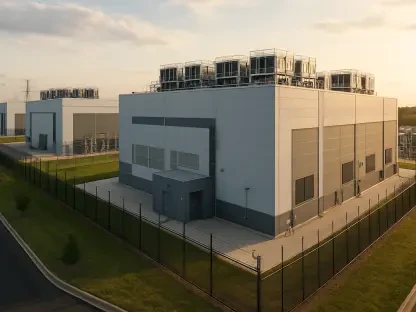Welcome to an exciting conversation with Maryanne Baines, a renowned authority in cloud technology. With her extensive experience evaluating cloud providers, their tech stacks, and their applications across various industries, Maryanne offers unparalleled insights into the rapidly evolving world of cloud computing. Today, we’re diving into the recent $10 billion cloud deal between Google and Meta, exploring its implications for the cloud market, the strategic motivations behind the partnership, and what it means for the future of AI infrastructure. Join us as we unpack the significance of this landmark agreement and its broader impact on the tech landscape.
How did Google secure such a massive $10 billion, six-year contract with Meta, and what does this deal encompass in terms of services?
This deal is a significant win for Google Cloud, reflecting both strategic alignment and competitive prowess. From what I understand, the contract covers a wide range of services, including datacenter servers, storage, and networking solutions. These are critical for supporting Meta’s ambitious AI initiatives. Google likely secured this deal through a combination of tailored offerings, competitive pricing, and a strong focus on AI-optimized infrastructure, which aligns perfectly with Meta’s goals. Their ability to demonstrate scalability and reliability in handling massive workloads probably played a big role in winning Meta’s trust over other competitors.
How does this contract compare to other major deals Google Cloud has recently signed, particularly with players like OpenAI?
This $10 billion deal with Meta is indeed a standout, often cited as the largest ever for Google’s cloud unit. When you compare it to the recent OpenAI contract, which was also a notable win as it pulled business away from Microsoft Azure, the Meta deal appears to be on a different scale in terms of financial commitment and duration. While the OpenAI agreement showcased Google’s ability to attract cutting-edge AI companies, the Meta contract underscores their capacity to support long-term, high-stakes projects. It’s a testament to Google Cloud’s growing reputation as a serious contender in the market.
In what ways does this deal strengthen Google’s position in the cloud market, especially when they’ve been trailing behind giants like AWS and Microsoft Azure?
Google has been playing catch-up with AWS and Azure for years, but this deal is a game-changer. With a reported market share growth from 8.2% to 9% recently, and a revenue growth rate of over 30% last year, Google Cloud is already on an upward trajectory. Landing a $10 billion contract with Meta not only boosts their financials but also enhances their credibility as a provider for large-scale, AI-driven workloads. It’s a signal to the industry that Google can compete head-to-head with the big players, potentially narrowing the gap with AWS, which holds around 37.7% of the market, and Azure at nearly 24%.
What do you think motivated Meta to choose Google Cloud over other competitors for their AI infrastructure needs?
Meta’s decision likely hinges on Google Cloud’s specialized capabilities in AI and machine learning, areas where Google has a strong track record. With Meta’s CEO emphasizing a vision of building personal superintelligence, they needed a partner who could provide not just raw computing power but also optimized tools for AI development. Google Cloud’s infrastructure, combined with their expertise in handling massive data sets and AI workloads, probably tipped the scales. Additionally, Google might have offered flexible terms or integration capabilities that aligned well with Meta’s long-term plans for projects like the Prometheus and Hyperion datacenters.
Can you shed light on Meta’s broader strategy of investing heavily in AI, and how this deal fits into that vision?
Meta is going all-in on AI, with plans to invest hundreds of billions in the technology and the infrastructure to support it. This includes more than doubling their spending on AI datacenters and related projects. The $10 billion deal with Google Cloud is a cornerstone of this strategy, providing the immediate capacity and expertise Meta needs while they build out their own massive facilities, which could take years to fully come online. It’s a pragmatic move—partnering with Google allows Meta to accelerate their AI development without waiting for their own infrastructure to catch up, ensuring they stay competitive in the race for AI innovation.
With Meta selling off $2 billion in datacenter assets to fund AI efforts, what does this tell us about their financial approach to this partnership and beyond?
Meta’s decision to offload $2 billion in datacenter assets shows a clear prioritization of liquidity and flexibility over owning every piece of their infrastructure. This approach allows them to redirect capital toward AI research and development, which is far more strategic for their future than maintaining certain physical assets. By partnering with Google Cloud, they can offload some of the infrastructure burden while still accessing top-tier resources. It’s a smart financial play—reallocating funds to where they’ll have the most impact, like building cutting-edge AI models, while leveraging external partnerships for operational needs.
How do you see this deal impacting Google Cloud’s financial performance, especially given their recent revenue growth?
Google Cloud has been showing impressive financials lately, with $2.83 billion in operating income on $13.6 billion in revenue for the last reported quarter, and a growth rate of 32%—far outpacing Google’s overall growth. This $10 billion deal with Meta, spread over six years, will provide a steady revenue stream and likely boost their growth even further. More importantly, it positions Google Cloud as a go-to provider for high-value contracts, which could attract other major clients. Financially, this deal is a catalyst for sustained growth and profitability, reinforcing their momentum in a highly competitive market.
What is your forecast for the future of cloud computing, especially with the increasing focus on AI-driven infrastructure?
I believe the future of cloud computing will be heavily shaped by AI, as we’re seeing with deals like this one between Google and Meta. The demand for specialized, high-performance infrastructure to support AI workloads will only grow, pushing cloud providers to innovate rapidly in areas like energy efficiency, scalability, and data security. We’ll likely see tighter competition among the top players—AWS, Azure, and Google Cloud—as they race to capture market share in AI-specific services. For Google, contracts like this could be a tipping point, potentially reshaping the market dynamics over the next five to ten years as AI becomes the backbone of digital transformation across industries.









